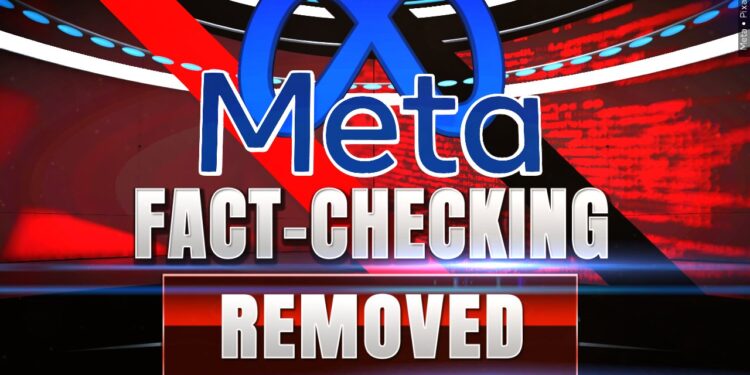MENLO PARK, Calif. — Meta, the parent company of Facebook and Instagram, has announced it will discontinue its traditional fact-checking programs, marking a significant shift in how the social media giant addresses misinformation on its platforms.
The decision, unveiled in a company statement on Monday, reflects a broader strategy to rely more on artificial intelligence tools and user-based reporting systems to manage false or misleading content. The move has sparked both praise and criticism from experts, watchdog groups, and policymakers.
The End of Traditional Fact-Checking
Meta’s fact-checking program, which relied on third-party organizations to verify the accuracy of content shared on its platforms, has been in place since 2016. The program played a key role in addressing the proliferation of fake news during elections, public health crises, and other major events.
The company cited scalability and efficiency as the primary reasons for the shift. “We believe artificial intelligence and community reporting provide a more scalable solution for addressing misinformation,” the company said in a statement.
Under the new approach, Meta will increasingly depend on AI algorithms to flag content that may violate its community standards or spread misinformation. Users will also be encouraged to report content they believe is false or harmful, which will then be reviewed by moderators.
Reactions to the Change
Critics argue that removing traditional fact-checking could leave Meta’s platforms more vulnerable to misinformation. “Fact-checking by qualified third parties provided a layer of accountability that AI simply cannot replicate,” said Jane Dawson, director of the Digital Integrity Alliance. “AI tools, while powerful, are not infallible and can miss nuanced or context-specific issues.”
Proponents of the shift, however, applaud the company’s focus on AI as a faster and more adaptable solution. “Scaling fact-checking to billions of posts every day is nearly impossible with human oversight alone,” said Mark Reynolds, a technology analyst. “AI has the potential to manage this volume more effectively.”
Concerns Over Polarization and Trust
The change also raises questions about how Meta will handle politically sensitive content. Critics worry the lack of independent oversight could lead to biases in content moderation or insufficient checks on harmful narratives.
Additionally, some users fear the reliance on community reporting could be exploited for bad faith campaigns, with groups targeting legitimate content they disagree with for removal.
Meta’s Future Plans
Meta has stated that the change will allow the company to focus on improving its AI tools and enhancing transparency in content moderation. It also plans to invest in user education initiatives to help individuals identify and flag false information.
The company emphasized its commitment to combating harmful content and misinformation. “This is not about stepping back but about evolving to meet the challenges of modern content moderation at scale,” Meta’s statement read.
What’s Next?
As Meta transitions away from traditional fact-checking, the effectiveness of its new approach will be closely watched by regulators, advocacy groups, and users. With misinformation remaining a pressing issue, the success or failure of this shift could have far-reaching implications for how social media platforms manage content in the digital age.









